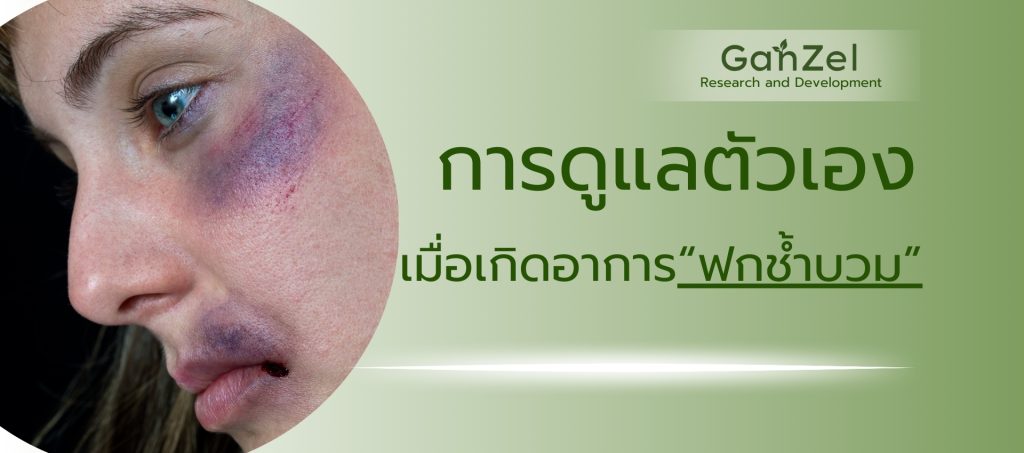Health Problems
Self-Care for Bruising and Swelling
Self-Care for Bruising and Swelling
Bruising and swelling are common issues in daily life, whether caused by minor accidents or exercise injuries. Understanding the causes and proper care methods can help alleviate these symptoms quickly.
Causes of Bruising and Swelling:
- Soft Tissue Injury: Impact or injury to soft tissues.
- Broken Capillaries: Breakage of tiny blood vessels under the skin.
- Fluid Accumulation: Build-up of fluids in the injured area.
- Tissue Inflammation: Inflammation of the tissues.
Care and Treatment Guidelines:
- Cold Compress: Apply a cold compress during the first 24-48 hours to reduce swelling and relieve pain.
- Elevate the Injured Area: Elevate the injured area to reduce blood flow and minimize swelling.
- Anti-Inflammatory Supplements: Recent studies show that certain natural extracts can effectively reduce inflammation and promote tissue healing.
- Herbal Remedies: Traditional Thai and Chinese medicine use various herbs to alleviate bruising and swelling.
- Sufficient Rest: Allowing the body to repair itself is crucial for recovery.
Modern medical innovations combine traditional wisdom with advanced technology, resulting in effective supplements for reducing bruising and swelling. For instance, products containing Centella Asiatica (Gotu Kola) extract can stimulate collagen production and reduce inflammation.
Additionally, extracts from pineapple and Houttuynia cordata have anti-inflammatory properties and promote wound healing. Essential minerals like zinc also play a crucial role in boosting the immune system and tissue repair processes.
Traditional Chinese herbs such as Panax Notoginseng have long been used to reduce swelling and relieve pain, particularly for injuries from falls or fractures. Another notable extract is Rose Hips, which research shows to be effective in reducing inflammation, especially in patients with osteoarthritis and rheumatoid arthritis.
Combining these ingredients into a dietary supplement can be an interesting option for those seeking self-care for bruising and swelling. However, consulting a doctor or specialist before using any supplements is essential, especially for individuals with underlying conditions or those on other medications.
Research Highlights:
- Centella Asiatica Extract: Anti-inflammatory and collagen-stimulating properties [1].
- Pineapple Extract: Anti-inflammatory effects of bromelain, particularly for sports injuries [2].
- Houttuynia Cordata Extract: Effective anti-inflammatory and pain-relief properties [3].
- Zinc: Critical for immune function and wound healing, especially in bioavailable forms like zinc amino acid chelate [4].
- Panax Notoginseng: Effective in reducing inflammation and pain, especially for bone and muscle injuries [5].
- Rose Hips Extract: Clinically shown to reduce pain and inflammation in arthritis patients [6].
Given the research-backed benefits of these natural extracts, products like “GANZEL Centella plus Zinc and Multi Herbal Complex,” which combine these ingredients, may effectively alleviate bruising and swelling and promote body recovery.
However, even with promising research, using dietary supplements should be under the guidance of a healthcare provider, especially for those with chronic illnesses or who are taking other medications.

